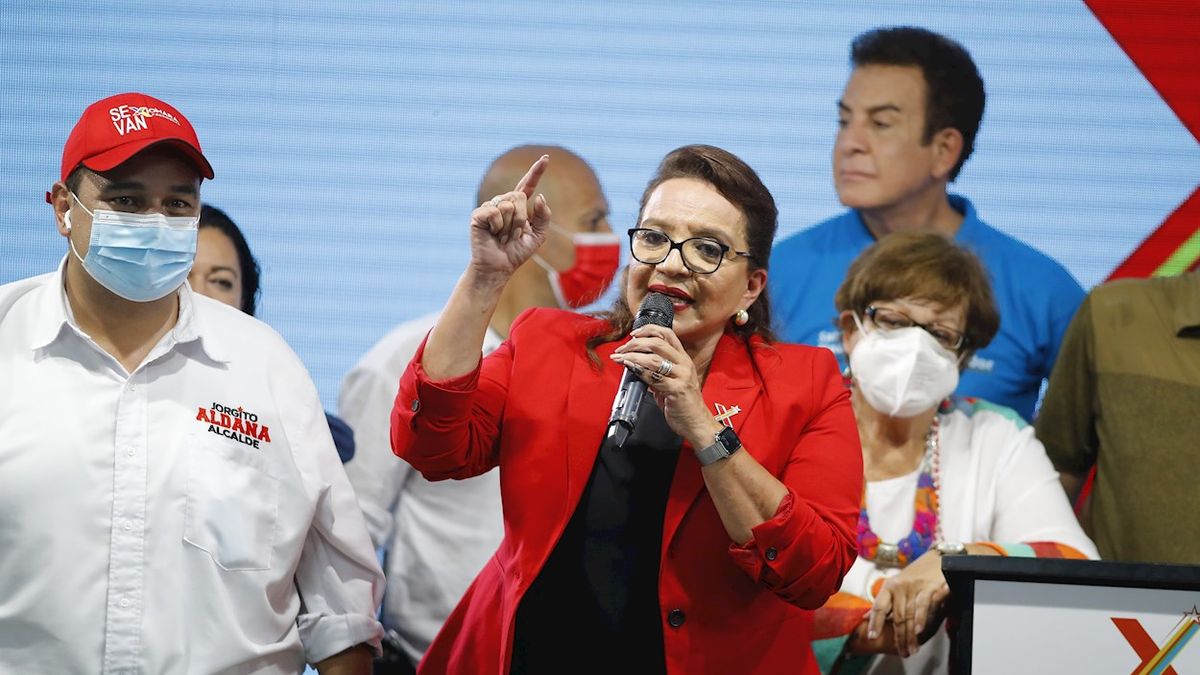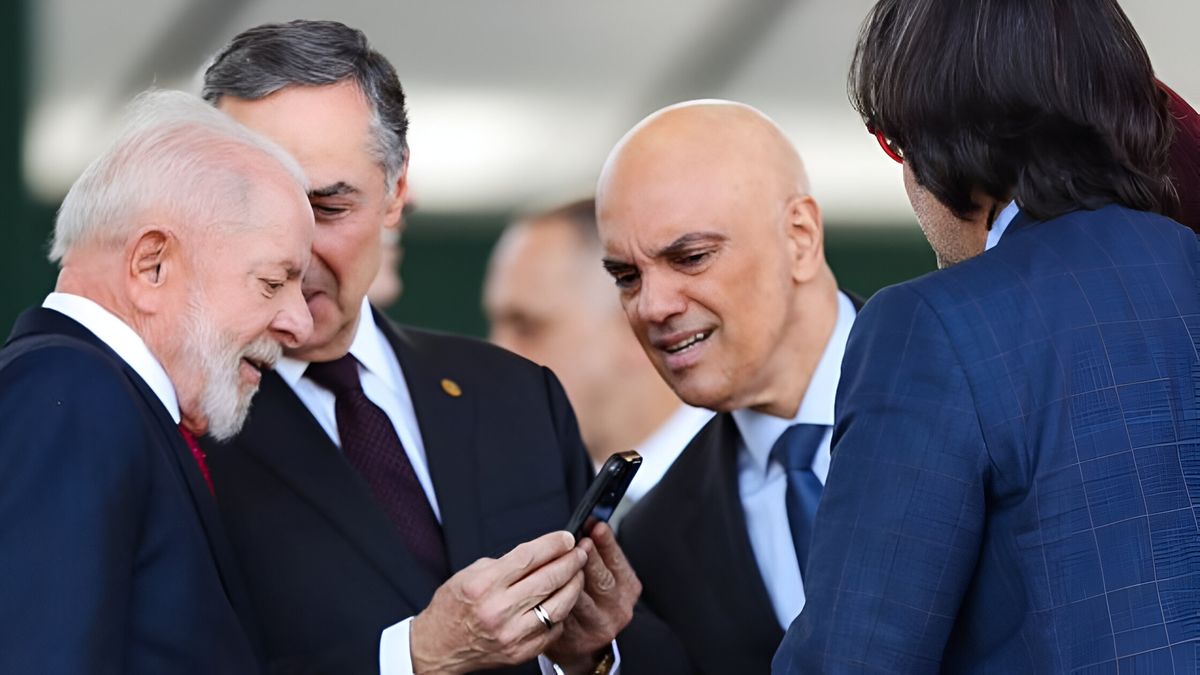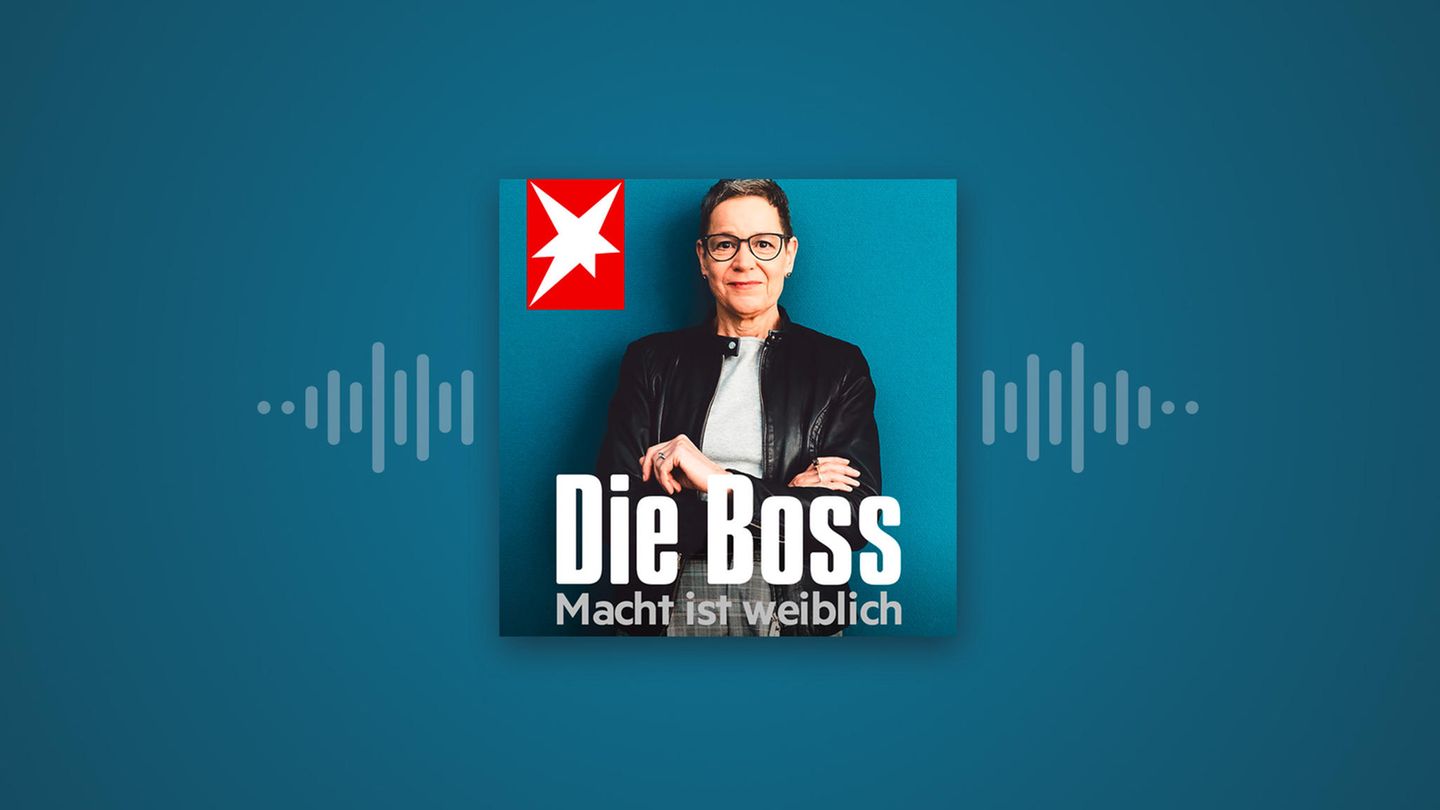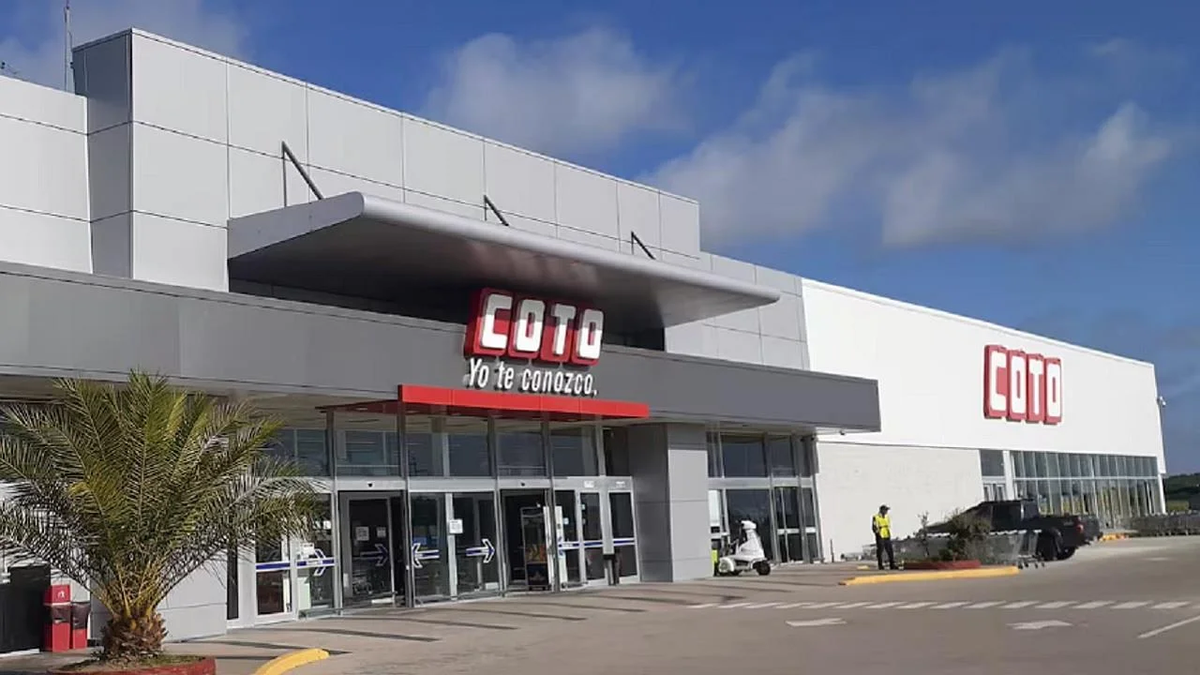Castro, from the Libertad y Refundación (Libre) party, obtained 53.61% of the votes, followed by far by Nasry Asfura, the candidate of the ruling National Party (right) with 33.87%, according to the latest figures from the National Electoral Council (CNE), when 51.45% of the votes have been counted.
In third place is the candidate of the Liberal Party, Yanni Rosenthal, with 9.21%.
Libre allied with several parties to confront the ruling party, which is allowing him to win the mayoralties of the capital, Tegucigalpa, and San Pedro Sula, the two largest cities in Honduras so far.
If the victory is consolidated, Xiomara Castro will put an end to a 12-year hegemony of the National Party and will replace the right-wing Juan Orlando Hernández, who ends his term amid allegations of drug trafficking in the United States.
“Good evening, we won,” Castro said in a public appearance in front of his supporters Sunday night, and promised a “government of reconciliation.”
“I reach out to my opponents because I have no enemies, I will call for a dialogue with all sectors” of Honduras, he said.
However, “no candidate or candidate can be declared the winner until the last act is processed,” warned the president of the CNE, Kelvin Aguirre, at a press conference.
In Tegucigalpa, the capital, fireworks were launched, while caravans of Castro supporters roamed the streets in various cities across the country.
Aguirre spoke of a “historic” participation of 62% of voters: 3.2 million citizens turned out to vote in elections without a ballot.
The winner will replace the president Juan Orlando Hernandez, of the PN, who ruled for two consecutive periods and ends his term amidst reports of drug trafficking from the United States.
For the ruling party, there was still hope. “When the minutes enter the capital, it will be shown that the National Party with ‘Tito’ Asfura has once again won the electoral process,” the leader and candidate for deputy, Jorge Zelaya, commented at a rally.
Whoever wins the elections must assume a country hit by gang violence, drug trafficking and two fierce hurricanes that swept the nation in 2020, where 59% of its 10 million inhabitants live in poverty.
Unemployment went from 5.7% in 2019 to 10.9% in 2020, largely due to the coronavirus pandemic. All this pushes thousands of its citizens to try to migrate irregularly to the United States in search of work.
Castro consolidated his favoritism in the last stretch of the campaign and promotes a “democratic socialism” with an agenda that includes the legalization of abortion on grounds such as rape, and is open to discussing equal marriage, which has cost her rivals to label her as “communist.”
In these elections, 128 deputies, 298 mayors and 20 representatives of the Central American Parliament are also elected.
The days before the elections revived fears of possible fraud, denounced by the opposition in 2017.
During the campaign, at least 31 people linked to the elections were killed, according to the Observatory of Violence of the National University. This raised incidents if one of the parties was unaware of the results.
Asfura, 63, and current mayor of Tegucigalpa, also came to these elections as the favorite. It was supported by a solidly organized party and the timely deliveries of government bonds to vulnerable families.
Both applicants called to vote in peace.
In 2017, Hernández was reelected despite allegations of fraud from the opposition. Protests repressed by the government that left about thirty dead.
“The people will not vote for Xiomara, but against Juan Orlando Hernández and what he represents,” had warned Raúl Pineda, a lawyer and former member of the National Party.
Washington is attentive to what happens in Honduras, Pineda estimated. He does not want a new crisis to encourage more waves of migration.
The PN has governed since the overthrow of Zelaya in 2009, in a coup supported by the right, due to its proximity to Chavismo.
But corruption and drug trafficking scandals have plagued Hernández. Tony, his brother, is serving a life sentence in the United States for drug trafficking. The drug traffickers that the president helped extradite to that country – and the prosecutors who prosecuted his brother – accused him of being involved in drug trafficking.
Asfura, meanwhile, was accused in 2020 of embezzling public funds and named in the Pandora Papers.
The third most preferred candidate of the 13 in the race, Yani Rosenthal (Liberal Party), spent three years in a United States jail for laundering drug money.
“Honduras is known internationally as a narco-state, but there are no narco-states, only narco-governments,” Pineda said.
Source From: Ambito
David William is a talented author who has made a name for himself in the world of writing. He is a professional author who writes on a wide range of topics, from general interest to opinion news. David is currently working as a writer at 24 hours worlds where he brings his unique perspective and in-depth research to his articles, making them both informative and engaging.




